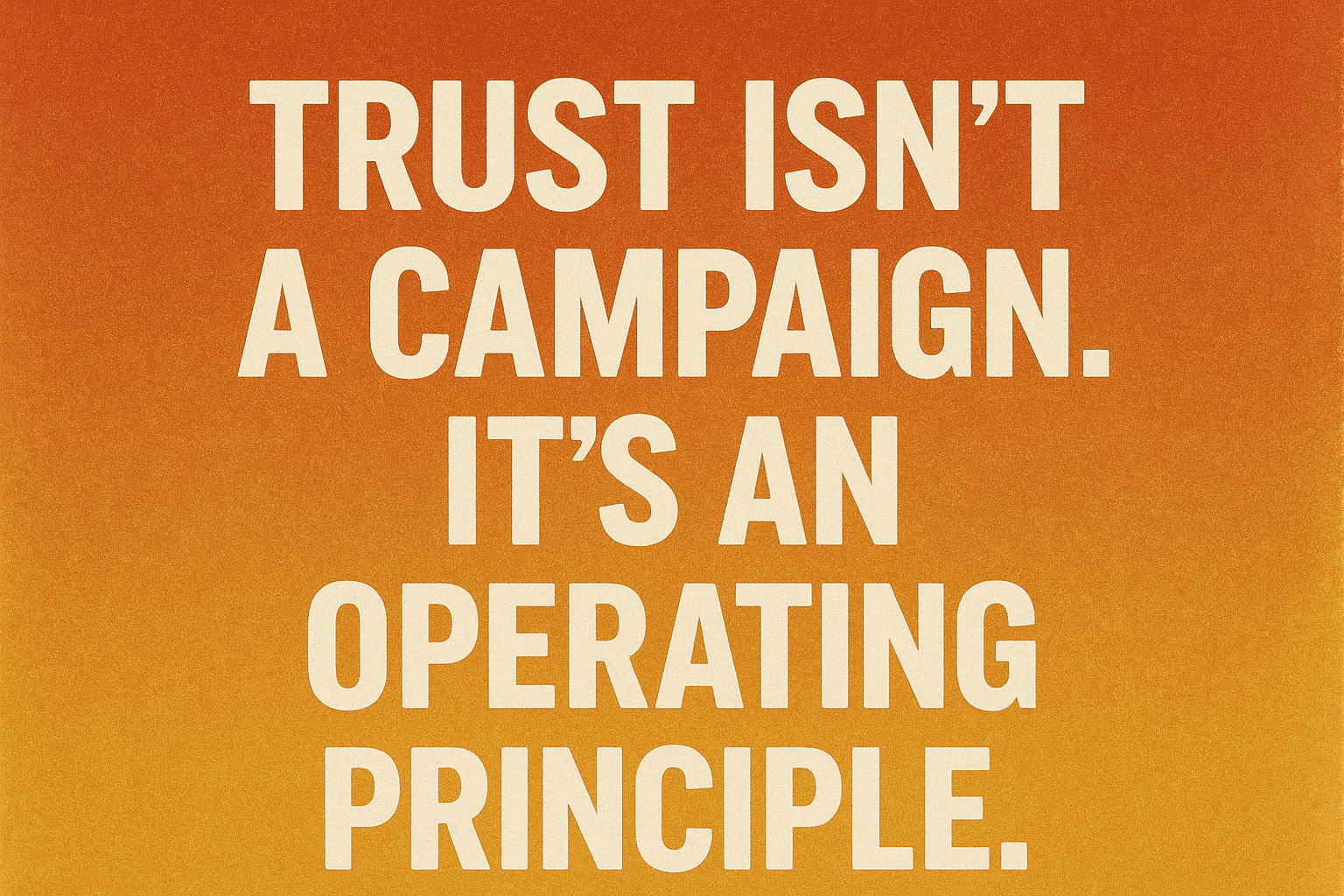A client once said to me, “We’ve spent decades building trust with our customers.”
Fair enough. But the way they said it—it felt like they thought the job was done. As if trust was some milestone they could frame and hang on the wall.
It’s not.
Trust isn’t a legacy asset. It’s a current liability. You don’t own it. You earn it—one decision at a time. Every day.
Customers aren’t walking around reciting your brand story. They’re scanning Reddit threads, app reviews, and screenshots. Their trust is provisional. Their loyalty is conditional. And your legacy isn’t a moat—it’s a footnote if today’s experience falls short.
The problem is: most teams understand trust conceptually, but they treat it like a campaign—something to build once and then move on from. That’s not how this works.
Great companies operationalize trust. They wire it into feedback loops, frontline enablement, and decision-making. It gets airtime in the same meetings where margin, CAC, and LTV do. It shapes how trade-offs are made.
And when trust starts to slip, it’s rarely loud. It dies in silence—slowly, then suddenly.
So say it out loud. Track it. Build mechanisms to surface where it’s fraying and where it’s strong. Act on it like it has a P&L, because in the long run, it does.
Trust isn’t branding. It’s operations.







